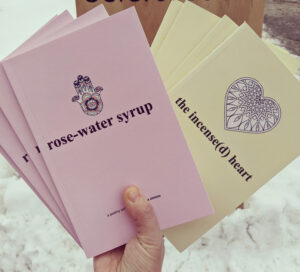 Marasmus is a condition by which babies will die if they are not touched. If you feed them, and keep them clean and sheltered, and fill a bank account in their name, they will still die if they are not touched. For me, this has always spoken to the greater human reality that we can not be sustained without the bonds of love and friendship. Without the kindness of a hug spoken or a hug felt. Without the gentleness of a touch both on our skin, or in our lives.
Marasmus is a condition by which babies will die if they are not touched. If you feed them, and keep them clean and sheltered, and fill a bank account in their name, they will still die if they are not touched. For me, this has always spoken to the greater human reality that we can not be sustained without the bonds of love and friendship. Without the kindness of a hug spoken or a hug felt. Without the gentleness of a touch both on our skin, or in our lives.
When asked to think about that which sustains, many people will provide a laundry list of things — food, air, roof, money, etc. I have never thought about these things as sustenance but rather the accoutrements of that which sustains me. For me, sustenance has always come in the form of both characteristics which I (often struggle) to live as a woman and bonds created and maintained with those whom I hold dear. Today, I am only interested in discussing the later of these two.
The Islamic perspective on any form of sustenance from Allah is simple. If you abuse sustenance, if you take it for granted or if you deny its presence in your life, He will remove it. First, let’s get one thing straight — if you believe in God, chances are that you don’t think he’s an asshole. If anything, you likely believe that He is Love, which would also mean that you are inclined to believe that He will first fire a warning shot, or maybe 100 warning shots before you lose your chance and you lose said sustenance. Also, please let’s not confuse this with, say, if you are a serial killer and you suddenly take for granted that you have been Jack-the-Rippering through the City without being caught. That you have not been caught is not sustenance but rather lousy coppers.
Back to Oxford Dictionary wherein sustenance is defined as the maintaining of someone or something in life or existence. For me, it has and will always be family and friends. I don’t think I can ever ever say it enough — the quality, the depth and the love which I receive from my friends is often-times overwhelming. There are extremely few moments in my life where I have felt alone or lonely; so few are they that I can count them on one hand. This state? These people? They are riz’ahs, gifts from Him, and everyday I am grateful for them and as often as possible, I try to show them just how grateful I am.
Family, lovers, children (of course!), friends — I would argue that these are all riz’ahs. If you don’t agree, then ask yourself if you have ever woken up at home in a warm bed, about to have a good breakfast, before you get into your car and head to a secure job and thought: I have nothing. Well. Then this is doubly for you. It is doubly for you because there is no Cosmic Joker pointing and laughing. You have been left with things, but not the people. And the people, as already argued, they are the gold in our lives. They are the sustenance, and these things have been removed because we have made choices which demean and take for granted these riz’ahs. They are not little choices with little consequences, but rather devastating soul-searing choices because to wake up here, in this country, with a roof over our head, food in our fridge, gas in our tank, and a secure job? To wake up in this state here? Holy hell are we in trouble.
So, what are we supposed to do if we wake up in this state? What are we supposed to do when we wake with nothing, completely dissolved by the choices we made, the choices to deny and demean and belittle and take for granted the riz’ahs?
We thank God for the blessings we can see – the full fridge, the gas, the roof, the warm bed.
We take stock and ownership of all of the choices we made and which we actioned and which we welcomed into our lives by our own hands. Essentially, we understand that choices have consequences; we open our chests to these consequences, we learn from them, and then we move away from these devastating choices. Additionally, we never make these same decisions twice.
We, believing that we are deserving of it, choose to be reborn, and we thank God for the fact that this ability, it too is a riz’ah if we choose to make it so.
And always we remember this simple Grace for ourselves, and we extend it to those around us:
“Whatever purifies you, is the correct road,
I will try not to define it.”
-Rumi



Recent Comments